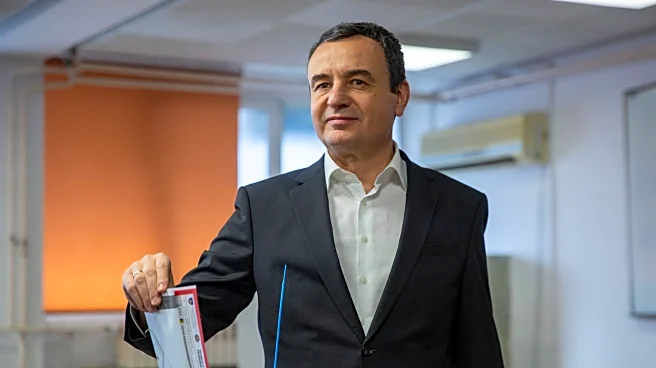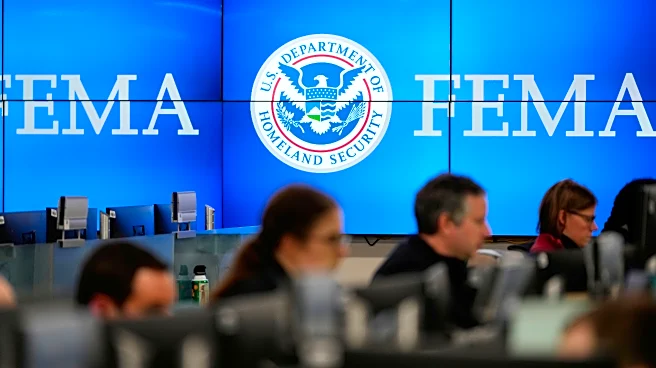What's Happening?
Israel and Hamas have commenced indirect talks in Egypt, facilitated by the United States, to negotiate an end to the ongoing conflict in Gaza. The discussions, taking place in Sharm el Sheikh, are centered around President Trump's peace plan, which includes a ceasefire and the exchange of hostages and prisoners. The plan has garnered international support, aiming to halt a war that has caused significant casualties and destruction in Gaza. Key figures in the negotiations include US special envoy Steve Witkoff, Jared Kushner, Israeli negotiator Ron Dermer, and Hamas leader Khalil al-Hayyah. The talks are expected to be brief, with Israeli Prime Minister Benjamin Netanyahu emphasizing a swift resolution.
Why It's Important?
The outcome of these talks could significantly impact the geopolitical landscape in the Middle East. A successful agreement would not only bring immediate relief to the war-torn region but also set a precedent for future peace negotiations. The disarmament of Hamas and the establishment of a provisional government in Gaza are critical components of the plan, which could lead to long-term stability. However, the complexity of the issues at hand, including the disarmament of Hamas and the governance of Gaza, presents challenges that could affect the plan's implementation.
What's Next?
The next steps involve the potential release of hostages by Hamas and the withdrawal of Israeli troops from Gaza, contingent on Hamas's disarmament. An international security force is proposed to oversee the transition, with significant aid expected to flow into Gaza to address humanitarian needs. The success of these measures depends on the cooperation of all parties involved and the resolution of outstanding disagreements, particularly regarding Hamas's role in Gaza's future governance.











